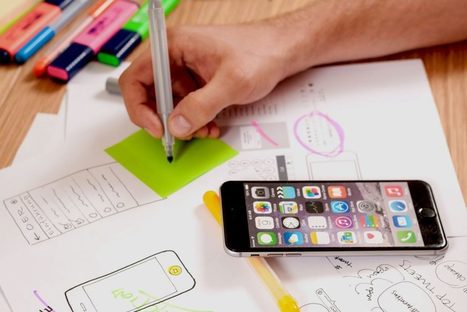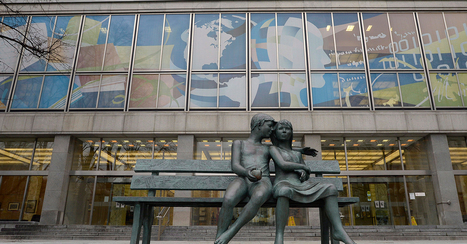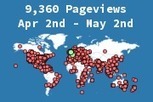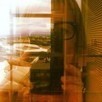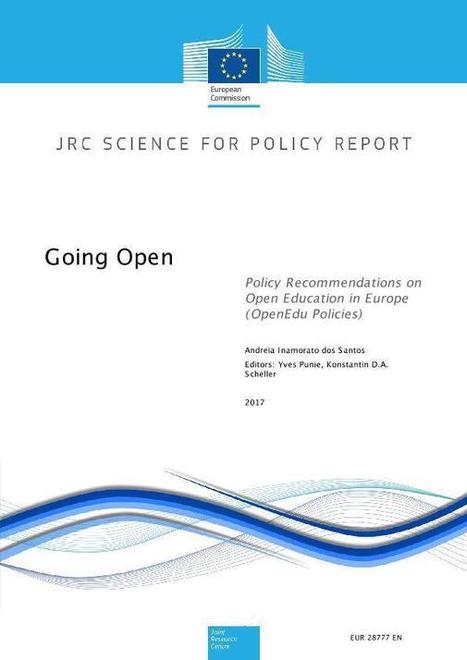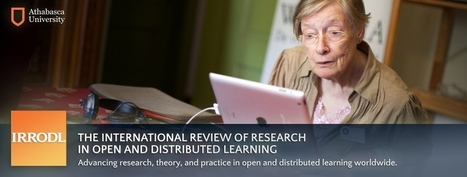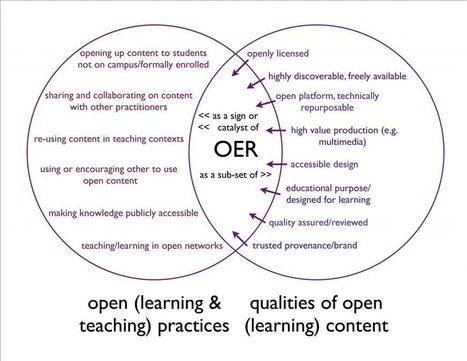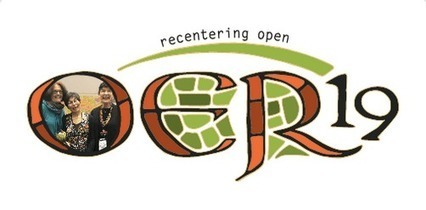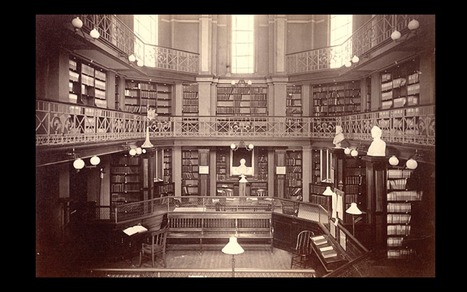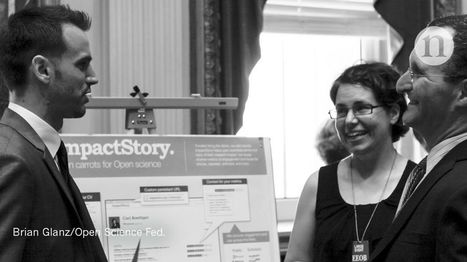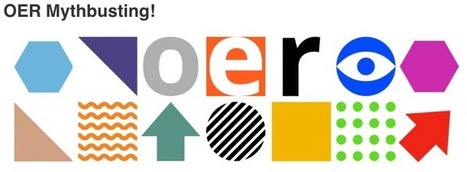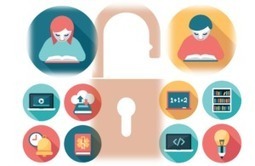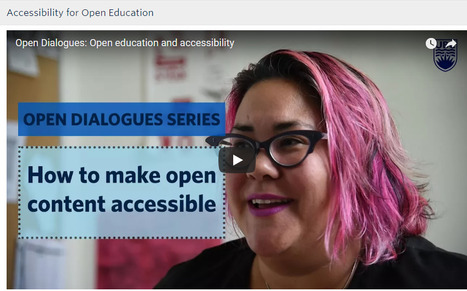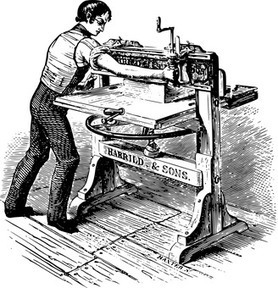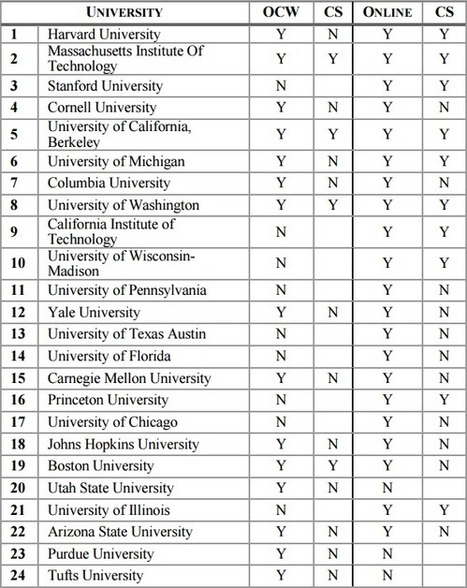 Your new post is loading...
 Your new post is loading...
I’ve been keeping out of the debate around the OpenEd conference panel (Rajiv has an excellent analysis of it, if you want to catch up), partly because it seemed a very N. American discussion, but also partly because I found it, well, boring. But then I thought about why it bored me, and that was, well, interesting (perhaps).
Open educational materials are very popular. But how can lecturers be convinced to use open educational resources – or even better, create them? Tutorials, guidelines, videos and other information for researchers, lecturers and other interested parties play a key role here.
Public archives represent a democratic vision where all are welcome, ideas circulate, and information is analyzed and diffused for educational purposes.
In a recent UW-Madison event focused on building community in MOOCs, Al Filreis offered a keynote, “The Non-automated Humanities MOOC,” in which he remarked, “Don’t talk about MOOCs as courses. That’s a slippery slope to creating a thing that doesn’t hybridize but colonizes.” To see the MOOC as a course, as that which reinforces ossified hierarchical relationships in learning environments, is to carry forward a banking model of pedagogy that does nothing to empower students or teachers. As Sean says, “The openness the MOOC presages is one where agency trumps position, where a student can become a teacher, a teacher a student, and the whole endeavor of education becomes a collaboration.”
Research data and publications, learning and teaching materials and software are all increasingly 'open', but what does this really mean, and where could it lead?
This report looks at the opportunities that working in the open creates, summarises support from Jisc in this area, and suggests three big ideas for what we could do the future.
In the report we look at the areas of research and education that are being transformed by open practices, and explain key concepts around licensing of publications, educational resources, data and software. We also look at some examples of where open approaches have been particularly successful, and consider the implications for institutions of moving to a culture where open practices are the default mode of operation.
Conceptualisations of open educational practices (OEP) vary widely, ranging from those centred primarily on the creation and use of open educational resources (OER) to broader definitions of OEP, inclusive of but not necessarily focused on OER. The latter, referred to in this paper as expansive definitions of OEP, encompass open content but also allow for multiple entry points to, and avenues of, openness. This paper explores the theoretical and empirical literature to outline how the concept of OEP has evolved historically. The paper aims to provide a useful synthesis of OEP literature for education researchers and practitioners.
It’s often said that history is written by the winners. At this year’s OER18 conference all the keynotes took had a touch of history about them. Lorna Campbell got the conference off to a great start with her long view of changing perspectives on OER. Momodou Sallah inspired everyone with his pedagogies of disruption, infectious activism and counter narratives, particularly around the history of access and control over and to, education and culture in Africa. In the final keynote, David Wiley took us through his potted history of open, open source, learning objects.
Open education is an increasingly important part of how educational institutions deliver their public mission and commit to increased quality and more effective education, and it is also a potential means of achieving social inclusion and equal opportunities. Open educational practices provide paths for educational institutions to be more accountable to society, they modernise education by embracing the use of digital technologies, and they also promote transparent strategies. Going open is a process for all involved: institutions, learners and society. It depends on creating both digital and non-digital opportunities to make education more collaborative, more transparent and more inclusive.
Open Educational Resources (OER) and their offspring, Massive Open Online Courses (MOOCs), are becoming important factors in achieving the Sustainable Development Goal 4: Quality Education (SDG4). This was recognised early on by UNESCO in 2004 when they first coined the term "Open Educational Resources" and in 2012 with the OER Paris Declaration. UNESCO is continuing its support of OER with the 2nd OER Summit in September 2017. There is recognition that OER and MOOCs, while not being the solution to the world's educational crises, will play an important, if not essential, role. The OER movement is less than 15 years old and is growing rapidly as more and more nations and institutions adopt the view that publicly-funded research and educational content belongs to the people and should therefore be open and accessible to them. Canada can play an important role in supporting SDG4 by increasing its support for OER and open education in general, both in Canada and abroad.
It was such an honor to be invited to speak on a panel at OpenCon with Denisse Albornoz, Thomas Mboa, and Siko Bouterse. Lorraine Chuen did an amazing job putting the panel together and moderating.
Lorraine’s questions were:
How do the solutions put forth by the Open movements reinforce Western dominance, colonialism, as well as barriers on the basis of race, class, gender, ability, etc…?
This post is part of my reflection on an upcoming talk I’m giving at Douglas College about open pedagogy: “What’s Open about Open Pedagogy?” In my previous post I started collecting some examples of activities that people have put under the umbrella of open pedagogy. In an earlier post I collated a number of definitions of open pedagogy, and in my next post I plan to dig more deeply into what I think open pedagogy is and what might be “open” about it.
Having decided quite a while ago that I needed to set up a new blog, I didn’t have quite the right impetus to do it until now. My old one has been more about work-in-general, whereas this one should focus on work-in-progress, specifically in the open education space. My hope is to put digital pen to paper more often to discuss developing ideas. So this new blog is a new chapter in that sense for me, but the main point of this post is also to mark the publication of a literal new chapter, which I am excited to share at last. I will also take this opportunity to say a few thank yous and explain the approach taken.
As Project DELILA prepares to come to a close, Jane Secker writes about how the project has aided the development of new and innovative teaching methods and has embedded digital and information literacy…
Bringing together librarians, educational developers and learning technologists from a range of institutions, Project DELILA has proven the potential and value that digital and informational literacy can have for higher education teaching. The Developing Educators Learning and Information Literacies for Accreditation Project (DELILA) is part of a series of projects to release a set of open educational resources (OER) and has focussed on releasing materials relating to digital and information literacy that are suitable for use in teacher accreditation programmes in higher education.
|
#OER 19 the conference that, according to the welcome message in the programme “goes beyond hero narratives”. I wasn’t exactly sure what that the conference co-chairs Catherine Cronin and Laura Czerniewicz actually meant by that phrase when I read it, but now a few days after the conference I think I do. The stories I heard, the narratives were not of the great, I am, look and me and do what I do kind. They were diverse, challenging, not perfectly boxed solutions. They were the narratives of humanity, the narratives of the forgotten and the unrepresented, the narratives of critical hope.
Good afternoon! A note about accessibility before I begin. If you would like to follow along with the written version of this talk, you can visit http://bit.ly/palakeynote. That link will also have the images on the slide deck with embedded descriptions for your screen reader, and the embedded video has closed captions.
I was really honored to be asked to keynote this luncheon for the Pennsylvania Library Association’s College and Research division at the PaLA annual conference… particularly because I fancy myself a parallel-universe librarian, and I know that out there through a wormhole somewhere, it is 1979 and I am using one of those thunk-thunk machines to date-stamp library book cards.
After being kicked out of a hotel conference room where they had participated in a three-day open-science workshop and hackathon, a group of computer scientists simply moved to an adjacent hallway. There, Heather Piwowar, Jason Priem and Cristhian Parra worked all night on software to help academics to illustrate how much of their work was freely available on the Internet. They realized how much time had passed only when they noticed hotel staff starting to prepare for breakfast.
Latest in the EDUCAUSE "7 Things" series is 7 Things You Should Know About Open Education: Content. Just 2 pages long it addresses the questions (those are the "things") 1. What is it? (This starts "Open educational resources (OER) are teaching, learning, and research materials in any medium that reside in the public domain or that have been released under an open license that permits no-cost access, use, adaptation, and redistribution by others.") 2 How does it work? 3 Who’s doing it? (Giving examples of repositories and use: I think all the examples are North American) 4 Why is it significant? 5 What are the downsides? 6 Where is it going? 7 What are the implications for teaching and learning? Download (open access) from https://library.educause.edu/resources/2018/6/7-things-you-should-know-about-open-education-content?
"Open Educational Resources are teaching, learning, and research resources released under an open license that permits their free use and repurposing by others. OERs can be full courses, course materials, lesson plans, open textbooks, learning objects, videos, games, tests, software, or any other tool, material, or technique that supports access to knowledge.
he term open education has recently been used to refer to topics such as Open Educational Resources (OERs) and Massive Open Online Courses (MOOCs). Historically its roots lie in civil approaches to education and open universities, but this research is rarely referenced or acknowledged in current interpretations. In this article the antecedents of the modern open educational movement are examined, as the basis for connecting the various strands of research. Using a citation analysis method the key references are extracted and their relationships mapped.
Sharing Practices, Building Community
WELCOME TO THE OPEN PEDAGOGY NOTEBOOK This website is designed to serve as a resource for educators interested in learning more about Open Pedagogy. We invite you to browse through the examples, which include both classroom-tested practices and budding ideas, and to consider contributing examples of your own experiments with open pedagogy.
This presentation by the Open.Michigan Team provides an introduction to Open Educational Resources (OER), shows several examples, and provides an overview for the Open.Michigan initiative. The presentation also demonstrates the steps involved in creating and sharing your own educational materials as OER.
The focus of many open education projects is to provide access to education. But what does access mean? If the materials are not accessible for each and every student, do they fulfill the mandate to deliver fully open education? The open education movement has helped people in different parts of the world access content that they would otherwise not be able to view or interact with. Open education resources reduce costs for students and allow for greater flexibility for instructors. Accessibility can help push the movement even further forward.
This post was written by Martin Weller.
One of the things we’ve noticed as a research team attending different conferences that deal with aspects of ‘Open Education’ is that people come into it from a wide range of backgrounds. It is also quite a broad term, with many different interpretations and perspectives. This can make it quite difficult for a new researcher to know where to start, or to come to common understanding when people have different starting points.
When it comes to the ‘Create’ part of the 7 Cs of Learning Design most course creators will create original content for the core of their course. However, it can be beneficial to incorporate ready made content from other sources rather than constantly reinventing the wheel.
Provided you respect any attached copyright and distribution restrictions, many educators are happy for their content to be shared to a broader audience.
E-learning encompasses not only technology but also pedagogical and instructional strategies to configure a complete learning environment based on the Internet. E-learning is nowadays widely used in higher education as a mean for supporting learning on academic programs. Concurrently, the Open Educational Resources (OER) are becoming a valuable alternative to improve access to high-quality educational content released under open licenses by outstanding universities worldwide. The conjunction of both concepts can configure a strategy to improve the quality of the curricula in the higher education institutions, particularly in development countries, in order to equalize the learning outcomes of international academic programs and to reduce the cost associated with educational content development. This work aims to achieve a preliminary understanding of the potential of the OER availability to be used in E-learning environments. As a case study, we have conducted an exploration of the feasibility of using OER to supplement E-learning environments for Higher Education in Computer Science at Ecuador. The search of the OER suitable to be used for this purpose has been performed on all categories of OER websites, including Open Courseware projects of prestigious universities. Moreover, this paper highlights the main barriers as well as the opportunities derived from adopting OER in E-learning environments.
|
 Your new post is loading...
Your new post is loading...
 Your new post is loading...
Your new post is loading...






